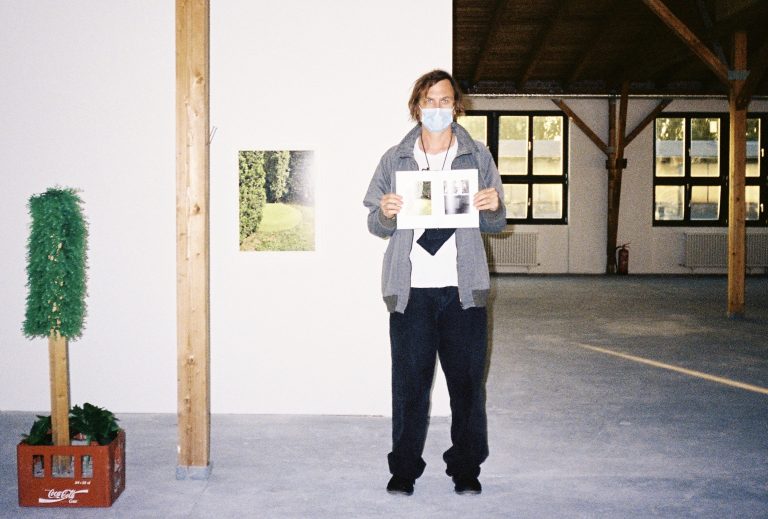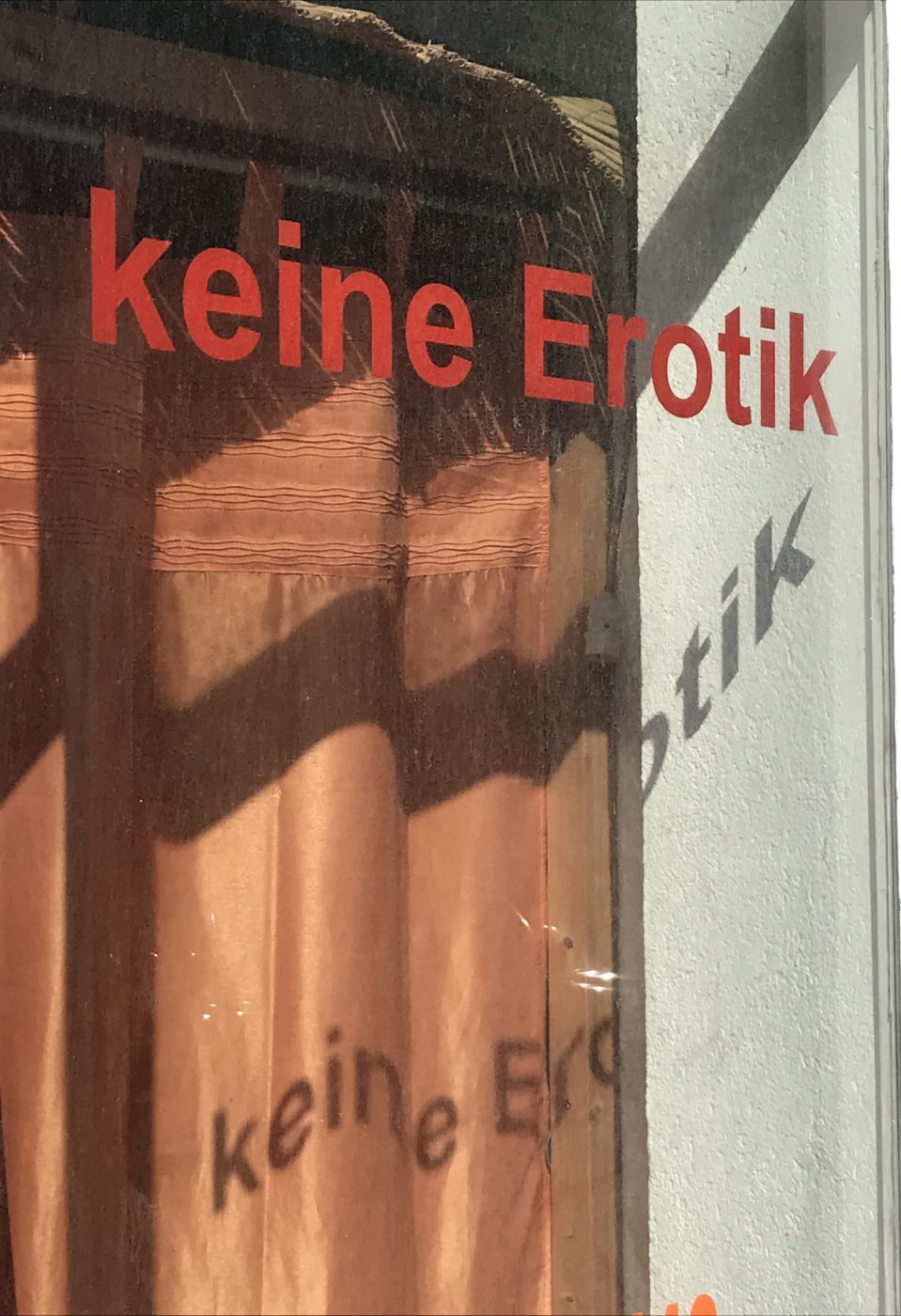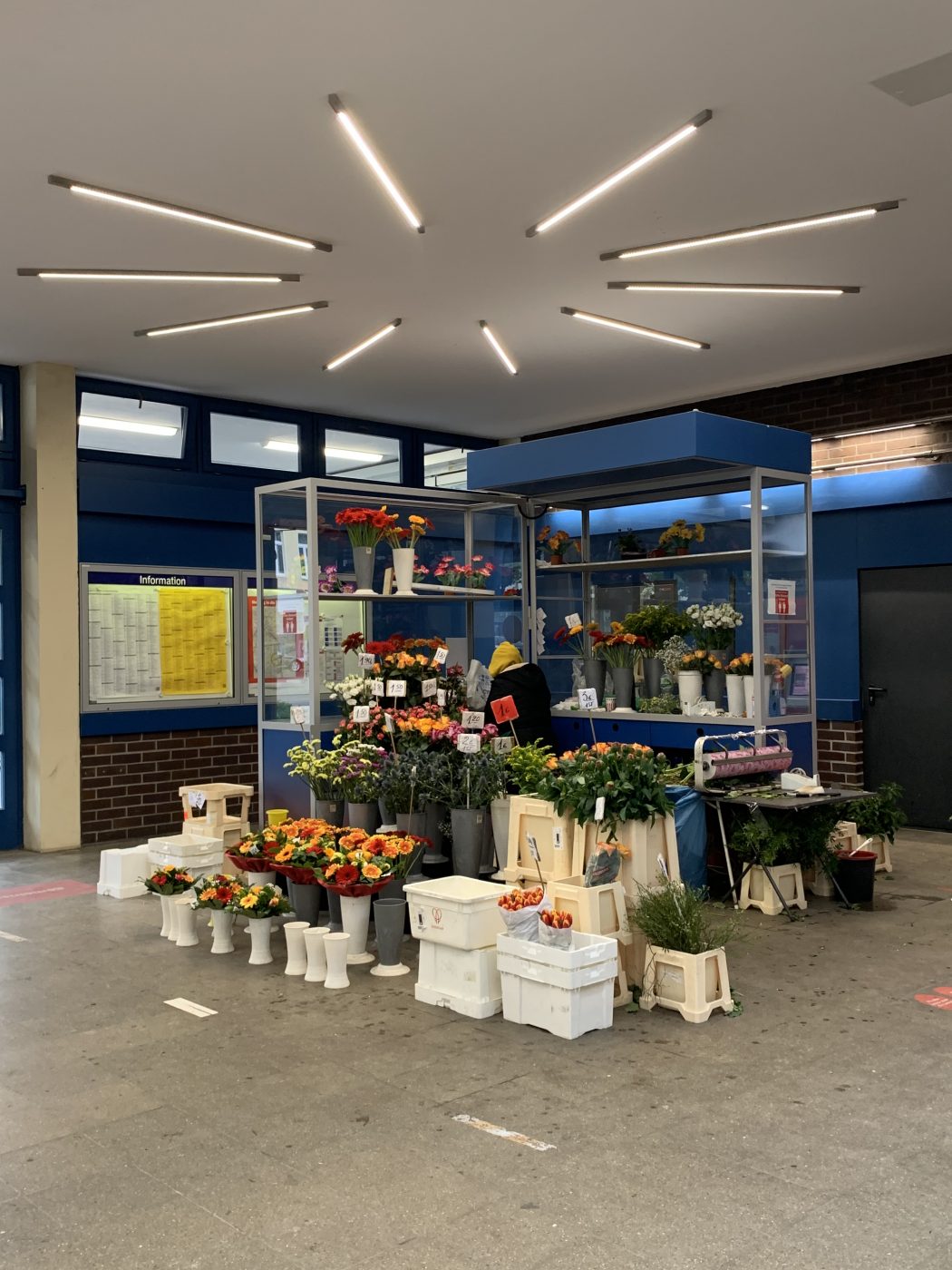„Immanente Transzendenz“
Lars Eidinger ist fasziniert von Widersprüchen. Seine kurzen Videoclips sind als visualisierte Oxymorone gedacht. Er nennt sie “immanente Transzendenz”. „Die Widersprüche sind unsere Hoffnungen“, hat Bertolt Brecht einmal gesagt, und das wurde zum Credo von Lars Eidinger. Für ihn ist das Paradoxe nicht das Ende des Denkens, sondern ein Ausgangspunkt, der Räume öffnet und eine Reibung erzeugt, von deren Energie man profitieren kann.
Lars Eidinger fängt die Welt ein, wie sie ist. Das Einzige, was er hinzufügt, ist seine Perspektive. Seine Protagonisten sind oft aus der Welt gefallen. Sie sind einsam in der Gemeinschaft. Für Lars Eidinger ist ein Foto kein Festhalten des Lebens, sondern des Todes, denn der Moment, in dem fotografiert wird, ist bereits vorbei. Der Unterschied ist vergleichbar mit dem Geschenk von Schnittblumen oder einer Topfpflanze. Die Schönheit von Schnittblumen liegt darin, dass sie bereits tot sind. Vergangenheit im Perfekt.
Die Absurdität, die Eitelkeit und die Nichtigkeit des menschlichen Verhaltens sind die Themen von Eidingers Werk. Es geht um die Nebenwirkungen der Zivilisation, den Rückschritt im Fortschritt und darum, darin Poesie und Schönheit zu finden. Die Vergangenheit der Zukunft ist der Augenblick. Und der Augenblick ist selbst ein Paradoxon – denn die Zeit vergeht und steht nicht still. Die Idee des „Jetzt“ macht die Romantik zu einer Utopie und ist das, was das Phänomen der Gegenwart beschreibt.
„Lars Eidinger ist sein eigenes Gegenteil.“
(John Bock)
Lars Eidinger is fascinated by contradictions. His short video clips are meant to be visualized oxymorons. He calls them immanent transcendence. „The contradictions are our hopes”, Bertolt Brecht once said, and this became Lars Eidinger’s credo. He considers the paradox not to be the end of one’s thoughts but rather a starting point which opens spaces and creates a friction, of which’s energy one can benefit from.
Eidinger captures the world as it is. The only comment he adds is his perspective. His protagonists often have been fallen out of the world. They are lonesome within the community.
For Lars Eidinger, a photograph is not capturing life but death, because the moment that is been taken at is already gone. It is like the difference in between giving a potted plant or cut flowers to someone. The beauty of cut flowers lies in the fact that they are already dead. Past perfect.
„Lars Eidinger is his own opposite.“
(John Bock)
The absurdity, vanity, and nullity of human behavior are the topics of Eidinger’s work. It is about the side effects of civilization, stepping backward in progress and to find poetry and beauty in this. The past of the future is the moment. And the moment is a paradox itself – because time is passing and not standing still. The idea of „now“ makes romanticism an utopia and is what the phenomenon of presence describes.
Web:
Exhibitions at Ruttkowski;68



